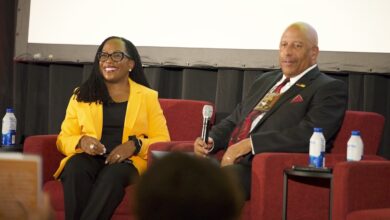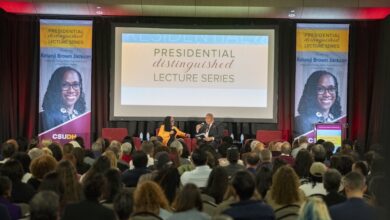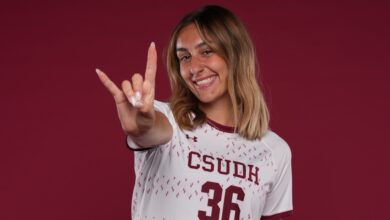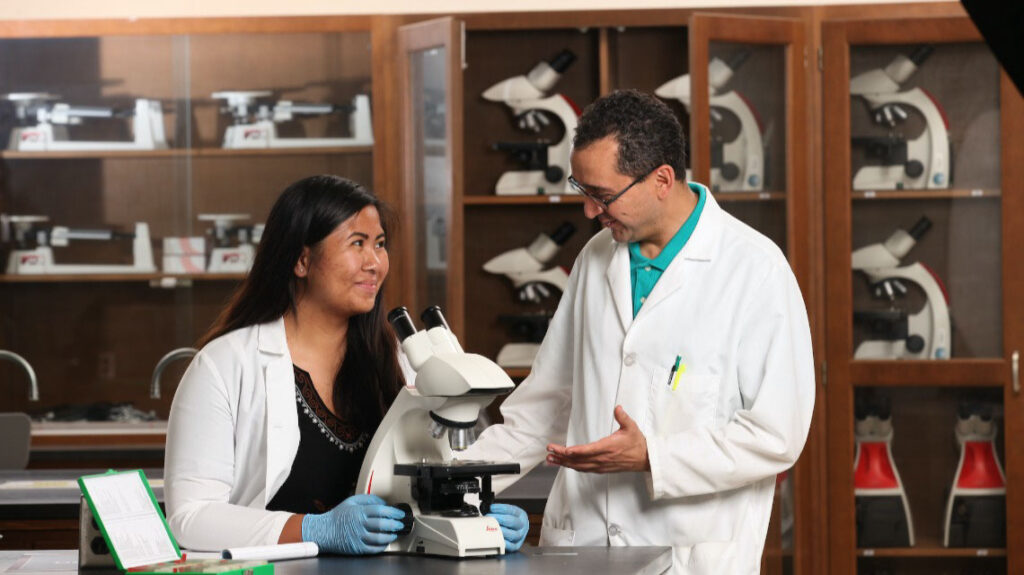
Faculty often face a steep learning curve when they begin their careers. In addition to juggling courses and research, they must navigate the complex maze of academia, its power structures, and its demands. For faculty from underrepresented populations, the experience can be especially isolating and discouraging. To address this, a collaborative CSU research project aims to improve retention and tenure for early-career, underrepresented, faculty in STEM by providing strengths-based training and personalized support.
“CSU AGEP Alliance for Diversity and Strengths of STEM Faculty” implements, evaluates, and scales the Alliances for Graduate Education and the Professoriate (AGEP) Alliance model of increasing the number of historically underrepresented STEM faculty. It also addresses “the very specific issues that every early career faculty member faces,” says Associate Professor of Psychology Philip Vieira, who serves on the CSUDH campus leadership team with Professor of Sociology Kara Dellacioppa and Professor of Marketing Kirti Celly.
CSUDH was one of four pilot campuses for the project when it launched in 2019 through a five-year grant from National Science Foundation. Now in its fourth year, the project has supported 32 faculty members, including seven at CSUDH, and has spread to nearly every CSU campus.
“A university is only as strong as its faculty are strong,” says Dellacioppa. “If this model is adopted on an institutionalized level, perhaps we will see better retention from faculty in STEM from underrepresented communities.”
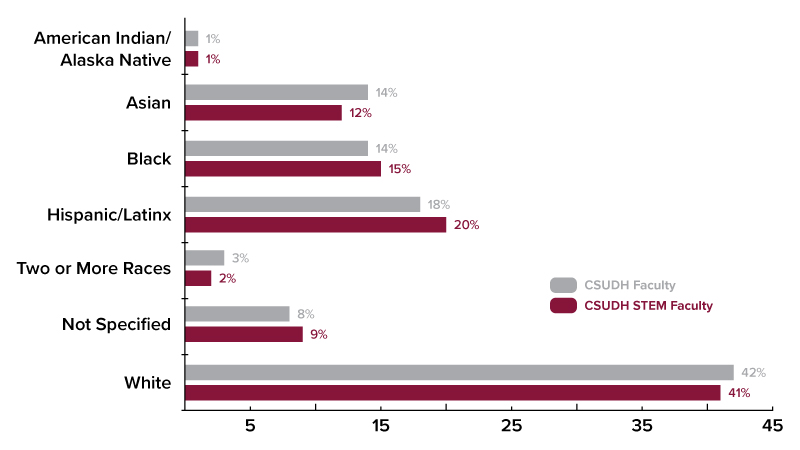
Program coaches guide new faculty through understanding their strengths and identities, and how those interact within the classroom or laboratory. There is also an emphasis on culturally informed teaching practices, which help faculty better empathize with students and understand how students’ upbringings might influence their approach to learning.
The result, Vieira says, is better outcomes for both faculty and students.
“Students are the direct beneficiaries,” he says. “We want to do a better job of keeping our students in STEM and helping them succeed by supporting the faculty that are engaged directly with them.”
Dellacioppa agrees, and says that early-career faculty should take the time to grow their skillsets and self-understanding.
“As faculty, you have students, colleagues, and research opportunities vying for your attention,” she says. “I wish every faculty member had this. It’s an investment in yourself I’ve not seen anywhere else in academia. This [one year] time commitment has payoffs in how you experience your career.”
Assistant Professor of Psychology Ashley Membere, who has taught at CSUDH since 2019, says that being a participant helped her to leverage her strengths in teaching, service, and research, and also led to personal growth.
“I know myself better as a person after completing the program,” she says. “It gave me a more holistic view of myself, and how all the little pieces of me fit together. I would tell any faculty member of color to do it, because it is very enriching personally and in terms of teaching.”
CSUDH is still accepting applications from early-career, underrepresented STEM faculty members interested in participating for the 2022-23 academic year. For more information, contact Kara Dellacioppa or Philip Vieira.

